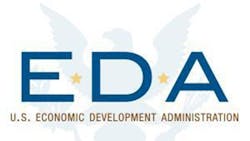Advancing Regional Economies Through Education
In an effort to help regions across the U.S. become more economically stable, the government is making funds available to educational institutions.
Under the U.S. Economic Development Administration’s (EDA) 2016 University Center Economic Development Program Competition, a total of $2,518,373 in grants to 24 colleges and universities in 16 states and Puerto Rico will distributed to run five-year programs that will leverage university assets to “promote American innovation and strengthen regional economies."
“EDA’s University Center program marshals the resources located within colleges and universities to support economic development strategies in regions in chronic and acute economic distress,” said U.S. Secretary of Commerce Penny Pritzker.
The grants fund initiatives that are focused on advancing regional commercialization efforts, entrepreneurship, innovation, business expansion in a region’s innovation cluster, and a high-skilled regional workforce.
Some of the grants include:
- Delaware State University, Dover, Delaware: for the University Center for Economic Development and International Trade, which will leverage partnerships to support business expansion in the region's food innovation and SME manufacturing clusters, develop a high-skilled regional workforce, advance high-growth entrepreneurship and cultivate innovation by providing platforms for intellectual exchange, business incubation, technology transfer and commercialization.
- Pennsylvania State University, State College, Pennsylvania: to launch a sustainable and collaborative regional innovation project called the Pennsylvania Regional Entrepreneurship Assistance Program (PA REAP). PA REAP will create high-wage jobs in distressed Pennsylvania communities through regional cultivation of entrepreneurial startup activities.
- Rutgers, The State University of New Jersey, Newark, New Jersey: to support the Rutgers University Technical Assistance Program (RUTAP), a “One-Stop-Shop” for technical assistance. RUTAP will integrate university and local resources to encourage 3D printing urban clusters that can revive the State’s manufacturing base in distressed communities to increase New Jersey’s competitiveness and job creation capability and drive economic growth in economically underserved communities. This program supports regional innovation clusters, urban entrepreneurship, developing a skilled workforce and re-shoring manufacturing jobs.
- University of Connecticut, Mansfield, Connecticut: to support the Connecticut Manufacturing Simulation Center, which will work to increase the capabilities of small and medium sized enterprises (SMEs) in computational modeling and simulation technologies as a means to cultivate innovation, develop a high-skilled workforce and expand regional businesses.
